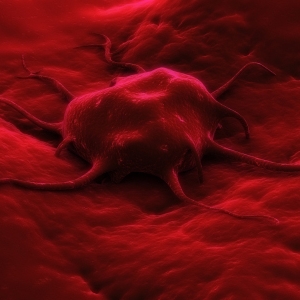
The number of people in the US with anal cancer has tripled since the 1970s,
according to a new study that suggests rates of detection in high-risk groups
may partly explain the rise in cases.
A US cancer database search found that the rate of anal cancers went from approximately one person per 100 000 between 1973 and 1996 to three people per 100 000 between 1997 and 2009.
"I think the literature has already shown that there has been an increase in anal cancer cases, but we were surprised to see how dramatically it increased," according to Dr Lily Lai, the study's senior author from City of Hope in Duarte, California.
According to the American Cancer Society (ACS), about 7 000 people will be diagnosed with anal cancer in the US in 2013, and about 900 will die from the disease. The most common type of anal cancer by far is squamous cell carcinoma, which accounts for about 85% of cases.
How the study was done
For the new study, Lai and her colleagues analysed trends in the 11 231 squamous cell carcinoma cases described in a US database for the years 1973 through 2009.
They saw a large jump in 1997 - in the 23 years before that one, 4 224 people had been diagnosed, compared to 7 007 people in the 13 years afterward.
Although both sexes saw an increase in anal cancers, the rate for men jumped most dramatically - from one in every 100 000 men to three in every 100 000. That compared to the women's rate, which rose from 1.4 in every 100 000 women to about 2.4 in every 100 000.
Lai said that the major increase in cases among men was a novel finding, and her team suspects it could be due to more men getting screened more often, especially men with human immunodeficiency virus (HIV).
HPV link
According to the team's report in the Journal of Clinical Oncology, a majority of people with HIV also have persistent human papillomavirus (HPV) infections.
The sexually-transmitted virus is somewhat less widespread in HIV-negative individuals, whose immune systems may eventually clear HPV infections from the body. HPV is linked to the development of cervical cancers and of anal cancer.
The ACS says eight of every 10 anal squamous cell carcinomas are caused by HPV.
"It could be that there is an increase in men (with anal cancer) and that there are other factors that we don't know are involved," said Lai. "We think it's probably a detection bias, that's the simplest explanation."
Dr Robert Cima, a surgeon in the department of colon and rectal surgery at the Mayo Clinic in Rochester, Minnesota, said that could also mean the number of squamous cell carcinomas did not change that much in people without HIV or weakened immune systems.
"It does show up, but certainly a patient without risk factors is at very low risk for developing this kind of cancer, and a blanket screening program across the country for all patients would not be a useful approach," said Cima, who was not involved in the new study.
However, he said, when people who fall into those high-risk groups notice
changes, they should get checked by a doctor who specialises in identifying and
treating those cancers.




 Publications
Publications
 Partners
Partners















